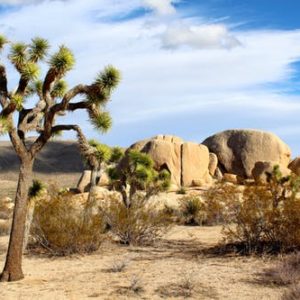John the Baptist: An Advent Palate Cleanser
 If you are preaching on, or listening to, the traditional texts of Advent, this Sunday (Advent II) brings you to John the Baptist.
If you are preaching on, or listening to, the traditional texts of Advent, this Sunday (Advent II) brings you to John the Baptist.
Which, or who, is a sure sign of Advent’s dissonance. John, the angular prophet who takes his stand in the desert, calls, “Repent, for the Kingdom of heaven is at hand.”
John is a spare, ascetic figure — more dissonance — with his culture and ours. His diet is ultra-locally sourced: locusts and wild honey. His garments were distressed way before distressed was an in-thing.
And he is morally uncompromising. His message is not shaped by focus groups, polling or attempts at currying favor. “Bear fruit worthy of repentance. Do not presume,” he says to the religious leaders, “to say to yourselves, ‘We have Abraham as our father.'”
As odd and off-putting as John is, there is also an attraction here. We know, in our heart of hearts, that we aren’t who we wish we were or who we claim to be. There may not be room at the inn, but there is room in our lives for cleaning up our act, for grieving our sins and those of the world in which we dwell.
There was an excellent column about Advent in The New York Times, this past Sunday. It is written by an Anglican woman. One of the things I noted about it is that she came to faith in her late 20’s and the dissonance of Advent was one of the factors which drew her to Christianity.
Here’s the author, Tish Harrison Warren:
“I did not grow up observing Advent or, for that matter, knowing what it was. Like many Americans, my family began celebrating Christmas the day after Thanksgiving. When I started attending an Anglican church in my late 20s, Advent drew me in. With its quiet beauty and doleful hymns, this season made intuitive emotional sense to me.”
Some call Advent, “the little Lent.” Harrison notes that there is a rhythm in the church’s seasons of the spirit. It is not all feasting or fasting, but both in their turn. Here’s more from Warren:
“As darkness lengthens in late fall, we begin to see the signs of the season — advertisements with giant red bows atop new cars, Christmas music blasting everywhere, the heightened pace of holiday hustle and bustle, lights and garlands speckling every corner of the city.
“But inside many church buildings, this time of year looks different. There, we find a countercultural sparseness. The altar is covered in purple, the color of both royalty and repentance. There’s a slowing down, a silent stillness. The music turns to minor keys and becomes contemplative, even mournful. The Scripture readings are apocalyptic and trippy, strikingly short on sweet tales of babies, little lambs and Christmas stars. In this small space, Christmas season has not yet begun. The church waits in Advent.
“In the church calendar, every period of celebration is preceded by a time of preparation. Historically, Advent, the liturgical season that begins four Sundays before Christmas Day, is a way to prepare our hearts (and minds and souls) for Christmas. For Christians, Christmas is a celebration of Jesus’ birth — that light has come into darkness and, as the Gospel of John says, ‘the darkness could not overcome it.’ But Advent bids us first to pause and to look, with complete honesty, at that darkness.”
It bids us, “pause and to look, with complete honesty, at the darkness.” It also gives us permission. We don’t have to throw a switch and be in the full-on holiday mode.
“American culture insists that we run at breathless pace from sugar-laced celebration to celebration — three months of Christmas to the Super Bowl, Mardi Gras, Valentine’s Day, Cinco de Mayo, Fourth of July, and on and on. We suffer from a collective consumerist mania that demands we remain optimistic, shiny, happy and having fun, fun, fun.
“But life isn’t a Disney Cruise. The tyranny of relentless mandatory celebration leaves us exhausted and often, ironically, feeling emptier. Many of us suffer from “holiday blues,” and I wonder whether this phenomenon is made worse by the incessant demand for cheer — the collective lie that through enough work and positivity, we can perfect our lives and our world.”
It takes courage for the church to embrace Advent, and courage to host John the Baptist. But the way to the manger goes through the desert.
![Anthony B. Robinson [logo]](https://www.anthonybrobinson.com/wp-content/themes/anthonybrobinson/images/logo.png)
![Anthony B. Robinson [logo]](https://www.anthonybrobinson.com/wp-content/themes/anthonybrobinson/images/logo-print.png)